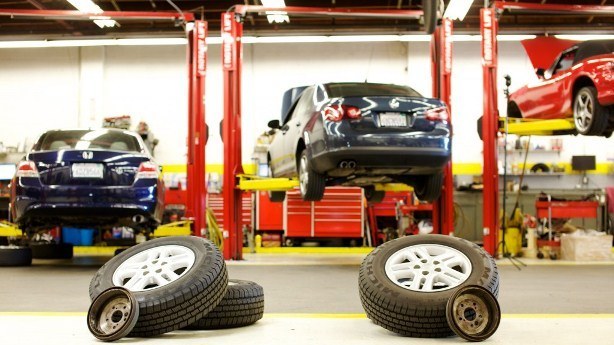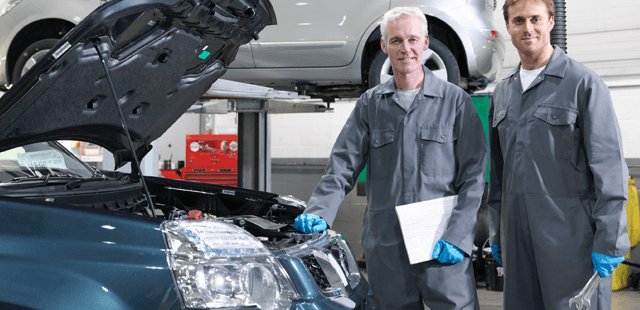All Categories
Featured
Regular engine tune-ups are important for maintaining your automobile's efficiency, enhancing gas effectiveness, and extending its life expectancy. Whether you're a skilled cars and truck proprietor or a newbie, recognizing the essential elements of an engine tune-up can help you keep your automobile running efficiently for many years. Below are some crucial ideas to assist you through the procedure.
- Adjustment the Spark Plugs. Ignition system are small yet magnificent components that play a crucial role in sparking the fuel-air combination in your engine. In time, they can wear or come to be fouled, bring about inadequate engine efficiency, reduced fuel performance, and hard begins.
Throughout a tune-up, check your ignition system for wear and replace them as required. For most vehicles, spark plugs must be changed every 30,000 to 100,000 miles, depending on the type and material. Fresh stimulate plugs make sure reliable burning and smoother engine operation.
- Check and Replace the Air Filter. The air filter is your engine's very first line of protection against dirt, particles, and other contaminants. A blocked or unclean air filter can limit airflow, triggering your engine to function more challenging and consume more gas.
Examine your air filter throughout a tune-up and replace it if it's unclean or previous its advisable service interval. A tidy air filter boosts engine effectiveness and enhances fuel economy.
- Check the Gas System. Gradually, your fuel system can gather dust and carbon down payments, minimizing engine performance and gas effectiveness. Cleaning up the gas injectors and gas lines during a tune-up helps maintain correct gas distribution and burning.
You can utilize a gas system cleaner or have a professional mechanic perform an extra extensive cleansing. This action is especially beneficial for older cars or cars and trucks often driven in stop-and-go traffic.
- Inspect the Belts and Hoses. Belts and hose pipes are important for various engine features, such as running the alternator, water pump, and air conditioning. Throughout a tune-up, check for fractures, fraying, or indicators of wear on these elements.
Replace any type of damaged belts and hose pipes to avoid possible breakdowns. A broken belt or leaking tube can bring about engine getting too hot or loss of power, so attending to these concerns quickly is necessary.
- Replace the Engine Oil and Oil Filter. Engine oil is crucial for lubricating moving parts, reducing rubbing, and managing engine temperature. Gradually, oil comes to be infected and loses its performance.
As component of a tune-up, replace the engine oil and oil filter. Make use of the kind of oil suggested by your lorry's producer and stick to the suggested modification periods. Clean oil maintains your engine running efficiently and prevents early wear.
- Evaluate the Battery and Charging System. A healthy battery is essential for starting your car and powering its electric systems. Throughout a tune-up, inspect the battery's voltage and check the terminals for corrosion. Clean the terminals if required and make sure a safe connection.
In addition, examination the alternator and billing system to ensure your battery stays charged throughout operation. If your battery is weak or old, think about changing it to prevent unexpected failures.
- Flush and Replenish the Coolant. The cooling system controls your engine's temperature, stopping it from overheating. Old or contaminated coolant can lose its effectiveness, bring about prospective engine damages.
During a tune-up, flush the old coolant and change it with a fresh blend. Likewise, evaluate the radiator, thermostat, and tubes for leaks or damages. Keeping the air conditioning system in good condition ensures your engine operates at the ideal temperature level.

- Address Caution Lights and Uncommon Signs And Symptoms. Modern vehicles are geared up with analysis systems that alert you to possible issues through dashboard warning lights. If your check engine light or any kind of other alerting indications get on, resolve them during your tune-up.
Additionally, take note of unusual symptoms such as unusual sounds, rough idling, or decreased gas performance. An expert technician can detect and fix these issues during the tune-up process.
- Don't Forget the Exhaust System. Your car's exhaust system removes dangerous gases from the engine and ensures proper discharges. Check the exhaust system for leakages, rust, or damages during a tune-up. A defective exhaust system can influence engine performance and lead to ecological and safety concerns.
- Usage High-Quality Parts and Fluids. When changing components or completing fluids during a tune-up, constantly go with top quality products that fulfill your automobile's specs. Using subpar parts or wrong liquids can negatively impact your engine's efficiency and long life.
Verdict: Routine Tune-Ups Are Key to Engine Wellness. Putting in the time to tune up your engine ensures it operates successfully, conserves gas, and reduces the threat of break downs. Whether you carry out these jobs on your own or count on a trusted auto mechanic, regular tune-ups are an investment in your vehicle's reliability and longevity. Adhere to these ideas, and you'll delight in a smoother, a lot more trustworthy adventure for years ahead.
Latest Posts
Grab Exclusive Auto Repair Offers in Chicago at Montclare Auto Repair
Explore WyHy FCU – Top Benefits for Your Future
Discover Your Financial Partner at WyHy – Essential Perks for Your Financial Success
More
Latest Posts
Grab Exclusive Auto Repair Offers in Chicago at Montclare Auto Repair
Explore WyHy FCU – Top Benefits for Your Future
Discover Your Financial Partner at WyHy – Essential Perks for Your Financial Success
